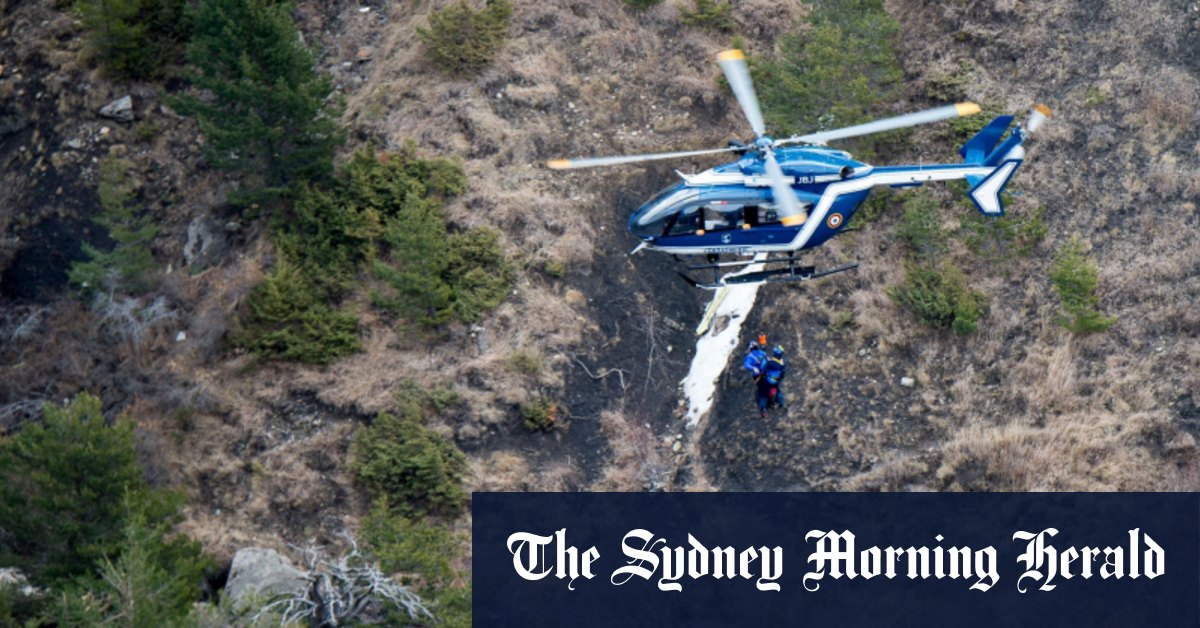Hikers rescued after following non-existent trail on Google Maps::It was unclear how the trail in British Columbia had appeared on Google Maps in the first place.
Downloading the All Trails app, or something like it, and using that would have helped a lot.
I use Osmand for trails in the woods, it is decently accurate in my country and also has a ton of other features
Yea it’s clunky as hell and unusable for driving, but as a browsable walking map it’s the best
Organic maps
Is not much better unfortunately, searching is garbage too
I’ve had some good luck but it definitely needs some work still
I’m also a happy osmand+ user, but once i got lost in the middle of a field / bush. I’m sure there was a trail once, but not safe to follow. Said bush was not very dense, so we though multiple times: Ok, this could be the way. Or that path?
Was the same for me this vacation. Gladly we were on a smaller mountain which was completely surrounded by villages, so we knew that just going down the mountain would lead to a bus that could bring us to the hotel, so we didnt care that much.
I use my eyes and generic sense of direction.
+rep for osmand
I’m waiting for them to hook up bard to google maps so we can do AI Hallucination Vacations. I can’t wait to see the world’s largest pistachio manhole machine carnival that happens in the middle of the Mississippi river!
There’s no cure for stupid. Where I live a year of two ago they had to rescue a lady with kids from a trail because it got late they didn’t had any headlamps. The lady said she didn’t realize it will get dark. Seriously? You think there are street lamps in the mountains or something?
If they were following a trail using a GPS they could always just follow it back. If you don’t know the trail and GPS is you only lifeline make sure you have enough power for the whole day and some more. Have a backup device. If the trail gets hard make sure you can follow it in the opposite direction. Those are all basic things. There’s really nothing you can do to stop stupid people from walking into mountains and calling for help. Google Maps has nothing to do with it.
Removed by mod
Yeah Google Maps has a bad habit of doing that. Follow the trail signs folks, not the Google.
Hypothetically, you should always be aware of what you’re doing before you go on a hike. You’re supposed to stop and look back every so often to make sure you will recognize the way back. Bring a bright-coloured line with you if it seems like you might get lost, but just remember to take it home with you when you go. Always assume that a map could be outdated, regardless of if it’s a paper map or a digital map. Be very cautious if the trail doesn’t match how it’s “supposed” to look. Bring a bit more food and water than you think you’ll need, and plan what to do in case of emergency.
After writing that, it might not be terrible for them to remove trails, to be honest. Even if they just had icons, people would still be arguing liability based on a lack of warnings. If they had warnings, it’s almost guaranteed that some would be missed (or skipped past.) Additionally, it’s likely difficult to consistently and continuously stay updated about localised terrain conditions, on a near global scale, simultaneously. We would need a level of surveillance that almost no one wants, just to keep these maps as updated as people expect them to be. For every path that’s busy, there are many that are mostly forgotten.
I’m starting to think that we might not have the proper capabilities to use GPS systems as a species. The number of people getting lost, stright up driving off of cliffs, or drowning from these situations is beyond insane to me. Do people not research anything before these hikes? Do people think that a GPS will substitute for situational awareness? What would they do if we still only had paper maps?
Sorry for the rant. I’m all for holding corporations accountable for their fuck ups. That being said, people should also be researching these things much more than they have been. Google having possible liability won’t make you less dead, and it won’t fix your loved ones grief after you’re gone. Even if they sued and won a lot of money, they would still never see you alive again.
Yeah, they should add a disclaimer if nothing else.
Twice I’ve had to find people I know heatstroking out on trails in the mountains. I found them due to dropping pins and being able to follow the trails they’ve followed on Strava or Google Maps or whatever.
They probably would have went up there without trails being on Google maps, but I probably would have been bushwhacking to find them if I couldn’t see the trail networks to know where they went.
I vote against removing trail maps. Hurts the good just as much, or more, than it tries to mitigate the bad.
Yeah, I am fully against designing things to be easiest for the lowest common denominator. Add information to educate people, offer guides and other resources, but if someone takes the rope of freedom and ends up wrapping it around their own neck, that’s on them. We don’t need to redesign ropes or ban them so that they can’t be wrapped around necks.
Did they call you, or did you just stumble upon them?
They called me. The area they started feeling squirrelly in is pretty much my “backyard”. If they were in serious trouble, they would have contacted S&R, but in a rush I can get to any peak relatively quickly. You’d be surprised with how fast someone can recover from exposure/minor heat stroke with just some Gatorade, shade and water poured on them
Might not be the recommended method, but it has a 2/2 record for me so far ha
The agency in charge of the area should have reliable trail maps available online.
So, the proposal would just to make it more difficult to access trail maps? Seems like that wouldn’t be advantageous in scenarios like mine.
I don’t what country you’re in but in the US it’s not a proposal. They absolutely have these maps available for free online and at visitor/ranger stations.
Yeah, but the original comment was talking about getting rid of accessibility to those trail maps/gps
I see. Yeah I don’t think that’s a good idea.
Are you suggesting people bring miles of brightly colored line?
I’d trust it over a map that’s inaccurate, tbh. Otherwise, research, research, research.
ETA: To me, a large part of this is situational awareness. There is almost nothing that would make me trek deep into woods on an unfamiliar path, without being as prepared as possible. You can only see so many deaths happening before it makes a mark on you. Life over convenience, personally.
I also agree with the other person who said this stuff should be taught in school.
What you’d want is a compass and easily identifiable landmarks. You can make identifiable marks as you blaze a trail, breaking branches or marking trees, hopefully avoiding marring the bark. Generally you’ll be following a game trail anyway, it’s likely the easiest path to take.
Yes, but I still wouldn’t trust a map that doesn’t match what I’m seeing.
I agree with you completely
We need more exposure to the outdoors. Many yearn for that outdoor time, but in our city life we may never have developed any outdoor skills. Maybe that should be a course taught in high school or something, with a required outing or two. For myself, I wanted to learn backpacking but had no role models. I had to learn by reading books! Which of course got me into trouble. It didn’t cover exactly what to wear, and somehow I missed the lesson on “cotton kills”, and I ended up in the White mountains wearing cotton shorts in 40mph wind and hail while the temperature plummeted. I had rain pants which I did wear, but honestly I could have died from exposure. It didn’t help that my nap was outdated and the way down from the ridge was at least 1/4 mile from where the map showed. We got lucky and there are huts up there that have a cellar they keep with space for unlucky hikers. When we got to the hut and got a hot tea, it took a very long time until we STARTED shivering.
That was scary. But I don’t think an internet rant helps. I put in the time and read books, I just didn’t have any experienced hiker to talk to or go with me the first time. It’s really an experience thing. I’ve had other scary situations regarding snow on the trail as I was going up another 500ft elevation. You’d think that’s not much but it created some VERY dangerous conditions near the top. We ended up abandoning that hike because it really was too dangerous. That’s experience talking though. If it had been my first hike with no one else there I may have pressed on. There were some very slippery slopes and some very high cliffs they lead to. Someone died in that mountain the same weekend I was there.
The wilderness is tough. It takes education and experience to visit safely. I don’t think people really understand until they experience it themselves.
welcome to everywhere in southeast Asia basically
I can’t understand why someone would use Google Maps instead of something built for purpose like GaiaGPS or Alltrails when hiking.
Whenever I “can’t understand” something, I stop for a moment, and start interrogating my own assumptions of how the world works, because I clearly made an assumption of how the world or how people in general work and need to correct my own thinking.
It’s very hard to change how others do things. Much easier to start on yourself.
A good rule of thumb, I find is: instead of asking, “how can people think X?” ask, “why do people think X?” It puts one into an open-minded mindset in which one can learn something new rather than a close-minded and oppositional mindset.
deleted by creator
Their fucking stupid
Bravo
deleted by creator
guillable
A surprisingly enlightening comment for social media, thank you.
Right. These people followed Google Maps into the wilderness without verifying anything and had to be rescued and I’m supposed to ask myself why I thought that was stupid…? I mean it makes significantly more sense to assume that the people who made the poor decision and realized the predictable outcome are stupid, does it not?
The alternative is blindly following some other app into the wilderness though. Doesn’t seem like such a cut and dry example of stupidity.
I mean yeah, it does actually. Other apps are explicitly designed for that purpose. It’s even recommended by the authorities in the OP.
To be fair, Vancouver, BC is a popular spot for tourists, especially those doing outdoor activities, who I suppose may come from places with a different hiking and trail culture, and different types of signage. Maybe Google maps is more accurate where they’re from? Maybe they just didn’t realize how much landscape detail the tree cover can hide. Lots of folks who come here don’t speak a lot of English in my experience as well. It’s still on them, though.
I’m not even a hiker though, the trails are just too packed full of people for me here.
I’m not going to pretend that it’s impossible that they made some sort of honest and totally legitimate mistake but if, as the article says, they simply pulled up a trail on Google Maps and took off, that was an extremely poor decision and Occam’s razor indicates they are stupid.
I think these people are dumb as rocks myself, but it’s interesting to wonder why the bad decisions are made.
NSR I believe has a policy of not charging the costs of the rescues to those they pull off the mountains, to not discourage people calling for help when they really need it, but I’m sure that’s a struggle to justify some days.
because Google maps DOES list hiking trails. And for the popular trails it’s accurate enough. People who have used Google maps to guide their first 5 trails will be led to believe that their 6th one will be just fine and dandy.











